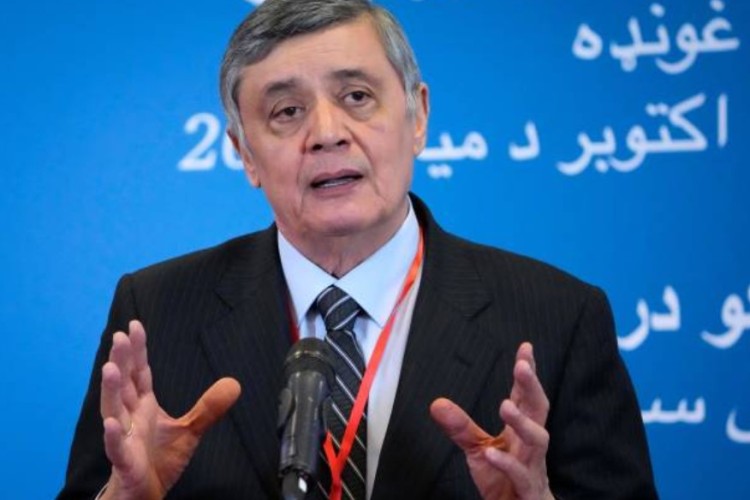Russia-Taliban thaw: In geopolitics, yesterday’s adversaries can become today’s allies. Russia’s decision to remove the Taliban from its list of terrorist organisations marks not just a symbolic reversal, but a strategic recalibration of its approach to regional security. With the withdrawal of Western forces from Afghanistan and the rise of Islamic State Khorasan (ISIS-K) as a formidable threat, Moscow is betting on realism over ideology—and seeking security in an increasingly fragmented neighbourhood.
The Kremlin’s re-engagement with Kabul may surprise some, but in reality, it reflects a deepening consensus among regional powers: that engaging with the de facto authorities in Afghanistan, however controversial, may be the only viable path to stability.
READ | India’s electronics manufacturing push needs policy stability
Threat from the ISIS-K factor
Russia’s outreach to the Taliban is not rooted in shared ideology but in a shared threat. The March 2024 Crocus City Hall massacre in Moscow, which claimed 145 lives, was attributed to ISIS-K—a group headquartered in Afghanistan and widely seen as one of the most lethal branches of the Islamic State.
For Russia, the threat is neither abstract nor distant. ISIS-K has carried out multiple attacks targeting Russian interests, including its diplomatic missions in Kabul. It has also launched cross-border strikes into Central Asia. In this context, Russia’s overtures to the Taliban are aimed at addressing the most immediate and operational terrorist threat on its radar.
Taliban forces have engaged ISIS-K in fierce battles since coming to power in 2021. Though critics question their capacity to neutralise the group entirely, there is little doubt that the Taliban views ISIS-K as a direct challenge to its rule. Russia and the Taliban, therefore, find themselves on the same side of a critical security equation. As Zamir Kabulov, Moscow’s special envoy to Afghanistan, noted: “ISIS-K is our common enemy.”
Russia-Taliban: Recalibrating diplomacy
Russia’s decision to remove the Taliban from its list of banned organisations in early 2024 is a step towards formalising a relationship that had been evolving informally for years. It builds upon intelligence-sharing frameworks dating back to 2015, and more recently, joint participation in international forums and business dialogues.
Trade between the two countries, though still modest, is growing. Afghanistan imported over 275,000 tonnes of Russian liquefied petroleum gas (LPG) last year, worth $132 million, and is now among the top buyers of Russian flour. There are also discussions about mining, infrastructure, and energy cooperation. A business forum planned in Kazan is expected to explore joint ventures in these sectors.
Such economic engagement not only serves both countries’ interests but could help address Afghanistan’s dire humanitarian and financial crisis—while offering Russia a stronger foothold in a strategically significant region.
Regional equations: Balancing influence in central Asia
Moscow’s engagement with Kabul must also be viewed through the lens of Central Asian geopolitics. With NATO’s departure, the power vacuum in Afghanistan has become a contested space. Russia is keen to ensure that this vacuum is not filled by chaos or external military actors.
Foreign Minister Sergey Lavrov has cautioned against the return of NATO military assets to Afghanistan, calling such moves a “time bomb.” Russia’s position is shaped by security concerns as well as by its longstanding interest in being a stabilising force in Eurasia. Moscow’s upcoming summit with Central Asian leaders in Dushanbe signals its intent to build a regionally-led security framework.
By normalising ties with the Taliban, Russia positions itself as a central interlocutor—one capable of negotiating peace, ensuring stability, and countering threats like ISIS-K that endanger not just Russia, but the broader region.
From history to realpolitik
Russia’s current posture marks a significant shift from its Cold War-era policy, when it supported the Northern Alliance against the Taliban. But time has altered the geopolitical landscape. Today, the primary concern is preventing Afghanistan from becoming a launchpad for transnational terrorism, and to that end, engagement is seen as preferable to isolation.
Russia is not alone in this calculation. China, Iran, and Central Asian republics are also engaging with the Taliban to varying degrees. Kazakhstan’s Deputy Prime Minister recently visited Kabul to explore trade opportunities. In short, the regional mood is one of cautious engagement—not endorsement.
The Taliban government remains unrecognised internationally due to concerns over governance, inclusivity, and rights. Russia, for its part, has not formally recognised the regime either, but it has pragmatically created channels for cooperation. It continues to uphold UN sanctions targeting individuals associated with terrorism and maintains legal caution in dealings with the Taliban leadership.
This approach allows Russia to keep its diplomatic options open while advancing tangible security and economic goals.
Strategic realism in an uncertain world
Russia’s evolving relationship with the Taliban is not without its complexities. Historical animosities, ideological divergences, and international scrutiny remain potent factors. Yet, in an environment where security threats are transnational and governance structures in flux, Moscow’s engagement is a reflection of strategic realism.
Rather than viewing this rapprochement as a rupture with global norms, it may be more appropriate to see it as part of a broader regional reordering. Afghanistan, under the Taliban, is the reality on the ground. Pretending otherwise helps no one.
By seeking to engage, contain threats, and stabilise its southern periphery, Russia is neither undermining multilateralism nor abandoning its global commitments. It is making a calculated move—based not on nostalgia or adventurism, but on the logic of regional security and national interest.
In the end, every nation reserves the right to shape its foreign policy according to the imperatives of its geography, its history, and its security. Russia’s engagement with Afghanistan is a testament to that enduring principle.

